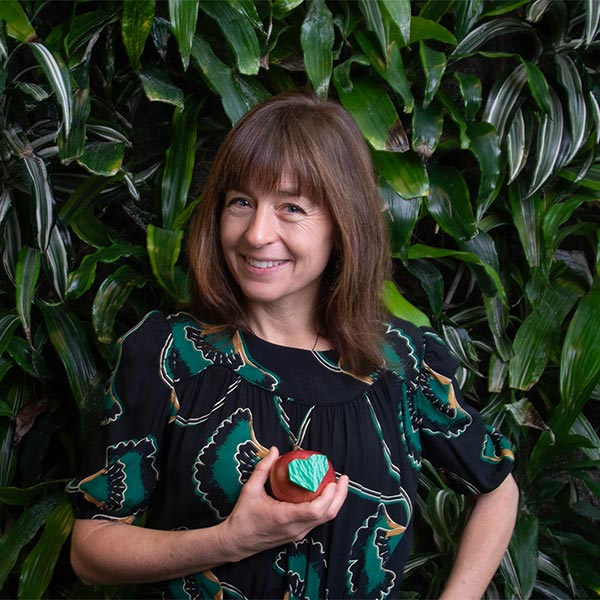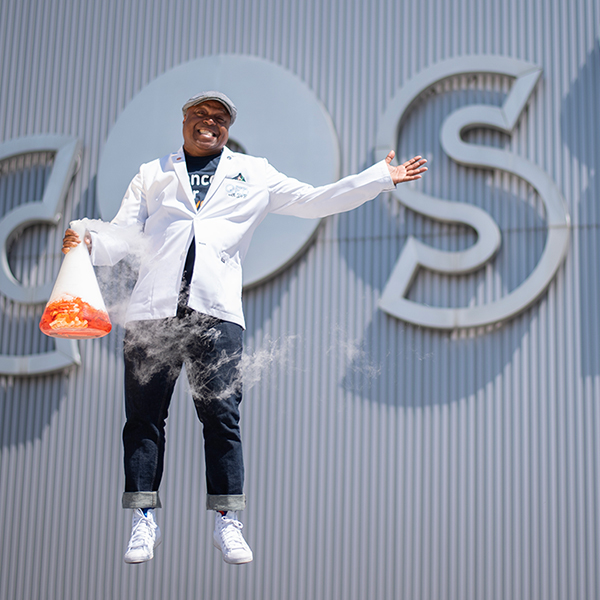Tamara Thermitus, LLM’13, no doubt, had an inkling that she would experience some turbulence in her role as the president of Quebec’s Commission des droits de la personne et des droits de la jeunesse when the Parti Québécois initially opposed her appointment because they believed her to be too “pro-multiculturalism.”
In the end, the PQ relented and Thermitus was officially named to the position in a unanimous vote of the Quebec National Assembly on February 7, becoming the second woman to be designated the chief guardian of Quebecers’ fundamental rights, and the first person of colour to hold the job.
Born in Haiti in 1965, Thermitus grew up in Sept-Îles, a community of old-stock Quebecers, immigrants and Innu, who call it Uashat mak Mani-utenam.
The native presence in Sept-Îles dates back 8,000 years. But modern Sept-Îles only emerged after the Second World War, as a port to ship iron ore from northern Quebec and Labrador. Tamara and her sister Martine were the only black kids in their school.
“We were two sisters. The majority welcomed us. The Aboriginals were not welcomed,” Thermitus says, recalling her first encounter with racism.
“I went to school with Aboriginals. When they came to school, they sang a little song,” she adds, recalling the Innu words.
Four years ago, Thermitus asked Michèle Audette, an Indigenous leader, also from Sept-Îles, what the words meant.
Breaking into peals of laughter, Thermitus says, “It took me 48 years to find out it meant ‘little black girls.’”
Growing serious again, she adds she now knows those Innu children were not offered the support they needed.
“When you are young, you don’t know what is happening,” she says, thinking back to the sporadic attendance of Innu children in primary school, even fewer in high school. “And after that you realize that they did not go to CEGEP either, and very rarely to university.”
Thermitus studied science in CEGEP. She was interested in law and studying science was a concession to her parents – but a concession that she saw as sensible. “Life closes doors. Why close your own doors?”
Immigrant families always want a doctor in the family, she says, breaking into hearty laughter again. “Anyway, that is the case with Haitians. I always had an interest in justice and when I talked to you about the Aboriginals, there was an issue of justice and understanding.”
Thermitus was admitted to the Quebec Bar in 1988, after earning a civil law degree from the Université d’Ottawa, and began working for the federal government.
By 2003, she was chief of staff to the deputy minister charged with resolving the issue of residential schools, the now-discredited and hugely damaging attempt to assimilate Indigenous children.
When the federal government created the Truth and Reconciliation Commission in 2006 to look into residential school abuses, Thermitus headed the federal team negotiating, “with the survivors, the elders, representatives of the churches and representatives of the First Nations” to frame the commission mandate.
“I’m not saying that reconciliation has been achieved. I am saying that Aboriginals are more present in the public space. We see more of them than we did 10 years ago,” she says, adding, “For me the work was done to allow people to speak freely.”
With the work of the Truth and Reconciliation Commission underway, Thermitus decided, at age 45, to do a master’s degree at McGill, to go “beyond the technicalities of the law.”
McGill did not accept part-time students, and to keep her job, Thermitus adjusted her work schedule, doing Justice Department work in the evenings.
“The days were long, but it was a blessing. It wasn’t easy, working full time, but it made me grow up,” she says.
Associate professor of law Richard Janda, BCL’85, LLB’85, remembers the students in his 2011 class on Theoretical Approaches to Law as “fantastic” and that Thermitus “was really a beacon in that group,” who “always, always, always” challenged his ideas.
Payam Akhaven, an associate professor of law, who taught Thermitus in his Social Diversity and the Law course, describes her as “a student one does not forget.
“She is a mover and shaker, and at a time of resurgent racism and xenophobia, we need people like her who will not continue business as usual,” Akhaven says.
In July, Quebec immigration minister Kathleen Weil, BA’78, BCL’82, LLB’82, announced that Thermitus and the human rights commission would co-ordinate a consultation on systemic discrimination and racism. Opposition leaders from the Coalition Avenir Québec and the Parti Québécois have been critical of the consultation process.
“The approach of [Quebec premier Philippe] Couillard to say that there is a system of racism in Quebec, I don’t accept that,” argued CAQ leader François Legault.
For her part, Thermitus sees a common point between the Truth and Reconciliation Commission and the Quebec consultation as “making it possible for people to speak freely.”
Janda, who is now a member of the human rights commission, is confident Thermitus can handle the challenge of rising “social intolerance” manifested “not just south of the border, but in our midst,” noting the murder of six Muslims in a Quebec City mosque and attacks on minorities in the province.
Thermitus is clear that race is not a biological determinant.
“The word ‘race’ should not be used because ‘race’ is a social construct. It feeds the discourse we want to destroy,” she says, giving the often-documented example of the differing treatment by police of whites and blacks.
She recognizes people have a different perception of her as a “racialized” woman.
“Racialized women in positions of power are… It is not a role people have seen before. It is very different.”
In her career she has often been the first and only person from a racial minority. “There is room, but we have to create that room,” Thermitus says. But, “being the first is often also being alone.”


